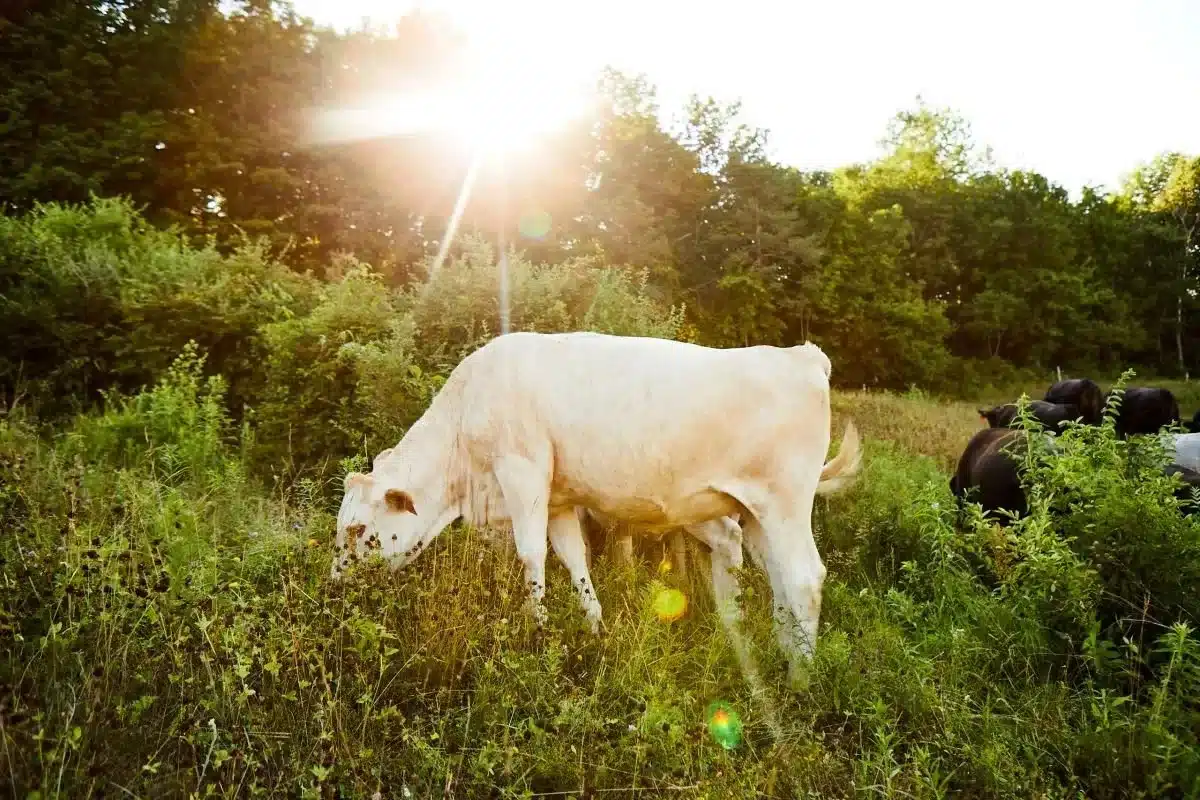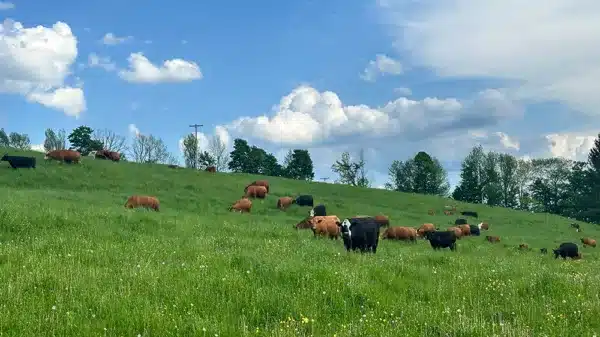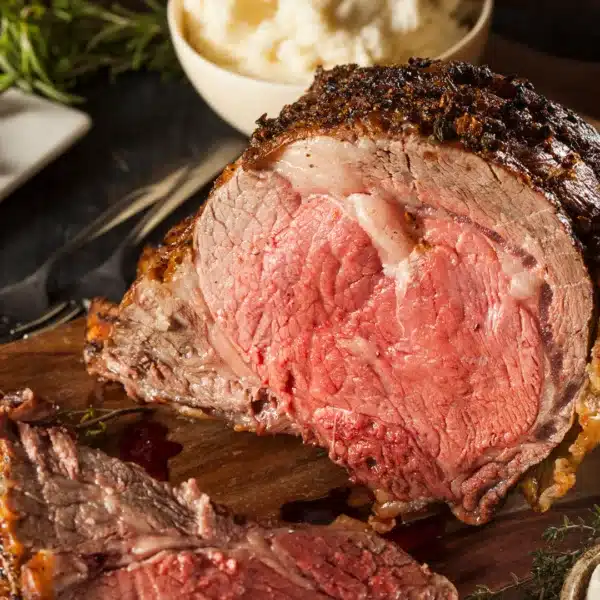Farmer Profile: Nicolas Baric

When we discuss regenerative or pasture-based farming, we often point to practitioners who are young and energetic. These idealists travel across the country to work co-ops and new wave agricultural outposts with a deep desire to change the world through farming. On the other side are second- and third-generation farmers—these folks have animal husbandry in their DNA. They inherently know that pasture-raising meat is better for the animals and the environment, as well as their neighbors and friends, whom they feed nourishing food with pride. And then there is Nicolas Baric, a bit of both, but with his own raison d‘être.

Nicolas worked in finance and real estate in Paris, France, for many years before buying a farm halfway around the world in the small town of Hebron, NY, on the border of Vermont.

“I worked in an office, and I just turned 45. My company was sold and I didn’t want to stay on with the new ownership, so I decided to take this big leap across the ocean, and in my life, too,” Nicolas said. “I wanted to farm. Quite rapidly, I got interested in rotational grazing and holistic management and have been trying to follow ever since.”

Having never worked a farm before and with only theoretical knowledge of pasture-raising animals, Nicolas left Paris and came to the United States. In place of experience, he brought the memory of childhood vacations in Southwest France on his uncle’s cattle farm. For Nicolas, that memory contained the kernel of a plan for a second chapter in life. He arrived in New York City in 2014 and purchased a farm on the Vermont border, in the foothills of the Green Mountains, by April 2015.

“I was looking for ways to wake up in the morning and discover new things. So I was very happy to discover a new country, a new countryside—I could say a new way of life,” Nicolas said. “The rules of nature, of raising animals, the seasons—everything was very new to me.”
With a lot to learn in a short amount of time, Nicolas was driven by a natural interest in pasture-based farming. He conducted his own research and picked up some tips from the local experts.

“When I started this project of raising beef cattle, I knew that some people—real farmers—have been doing that around here for a long time and probably better than I would ever do it,” Nicolas said. “So I had to bring something new. I selected a French breed heritage breed called Gascon and I crossed them with a local herd of Black Angus.”

Nicolas chose Gascon because they are a hearty, mountain-friendly breed that can withstand the harsh winters in the Hebron hillside. When bred with the Angus, the result is a lean, fast-developing, medium-sized animal that produces excellent tasting meat. “I learned pretty soon after I started that it’s interesting to cross breeds when it comes to meat, because you bring the best of each breed together,” Nicolas said.
Nicolas enjoys working with and learning from the local farming community, from hay farmers to contractors who’ve helped him build barns, drill wells, and install fence lines. During the busy spring and summer months, he spends all day out in the fields, moving cows from one pasture to the next, maintaining fence lines, and brush-hogging weeds. There are newborn calves to tend and, during the odd free moment, peaceful vistas to enjoy before moving the fence lines to the next paddock.



“The cows know when they see me that it probably means they’re going to be moved,” Nicolas laughed. “They put pressure on me by mooing and saying, ‘okay, okay, let’s go!’ They even try to push me through an open gate, but it’s important to move them at the right time if you want to improve the quality and the yield on the grass. If you move them too early, then they don’t eat the grass, it keeps growing, it germinates, and in the next round, it won’t be as good.”

For Nicolas, it’s part science, part art form. During the breeding season, he has to redesign and reallocate paddocks to keep the steers and young heifers and the bull separated. Keep the animals safe, keep the grass growing healthy and nutritional—these are the daily rituals that Nicolas has created for himself, which may seem routine and repetitive from up close, but, by the end of the season, alchemize into healthy, great-tasting food for Walden members.

“Most of the time, with a calf operation, farmers have a herd of cows and they sell the calves every fall and then they start again from scratch so they can have many more cows on the same land,” said Nicolas, who plans on expanding his operation by buying more land soon. “My cows are born on the farm, they eat grass and finish on grass, on the farm. The animals that are going to be harvested, they have to spend three summers on the farm. This limits my production to 30 animals a year, which is a sacrifice, but it’s worth it.”
Animals that live their whole lives on the farm in which they were born are less susceptible to health issues. The farmer knows how they were treated, fed, and raised from day one. The end result is a controlled, closed herd with happier, healthier cows that make better tasting meat that’s better for the environment.

“I could say any moment I spend with the cows is special,” said Nicolas. “But when calving happens—just to see this little animal stand up on its feet for the first time, just 10 to 15 minutes after it was born and it manages to nurse and move around—It’s always satisfying.”

Here at Walden, we are inspired by Nicolas: a regular guy working in a corporate world, who left his job and his home country looking for meaning—for something new—and found it on a small farm raising cattle in Hebron, NY. Thanks, Nicolas, and thank you, Walden members, for supporting Nicolas and small farmers across New York and New England.
Related Posts

Our B Corp Recertification & Cultivating a Thriving Food System
This is about building something better—for the land, for farmers, for communities, and for the future.

Winter Pastures and Southern Wisdom
Change starts with the farmers. Those who wake up every day and choose to do things the right way, not the easy way.

Spring Holiday Prime Rib with Potatoes
Spring holidays are coming, and that means good food and company—hopefully with a side of laughter (and some bickering over who gets the last roast potato).